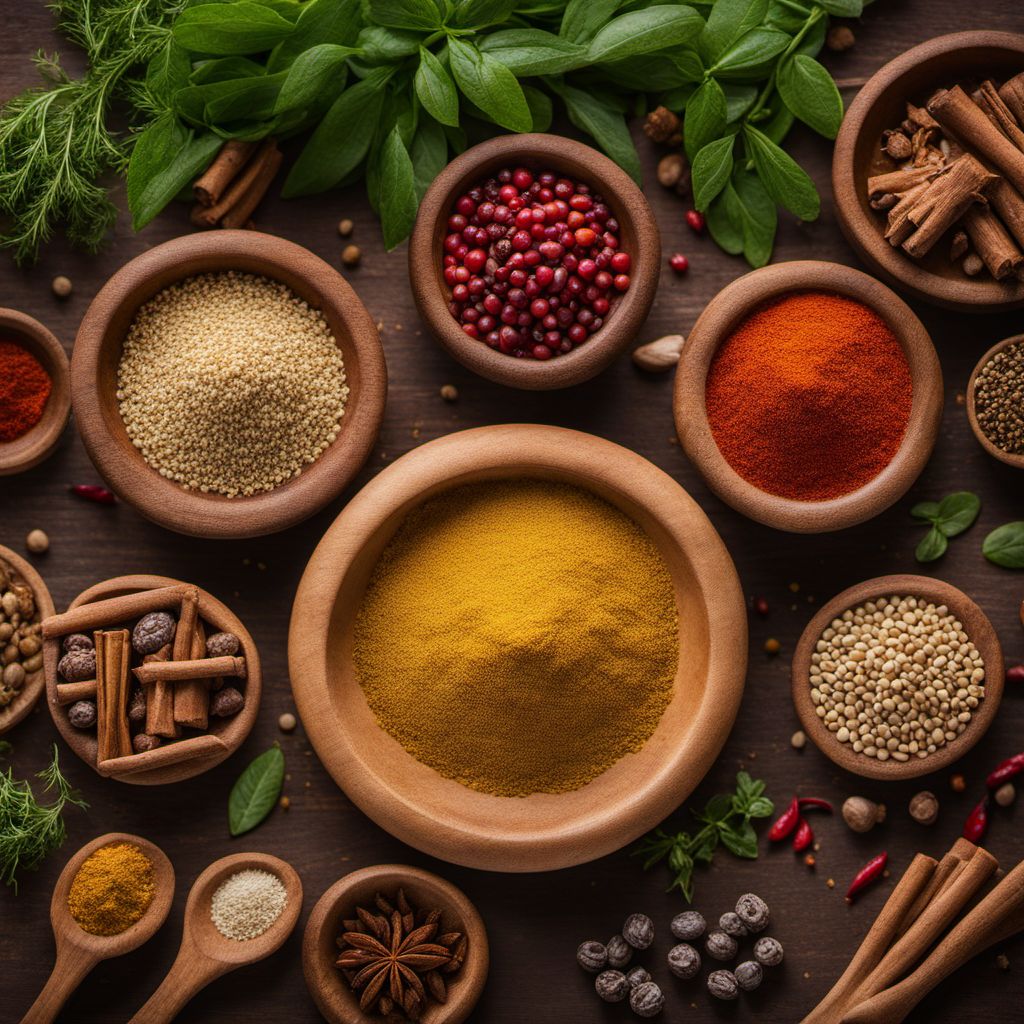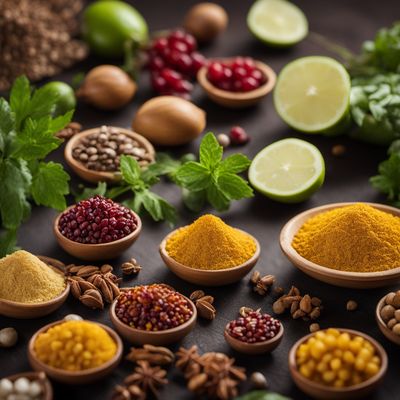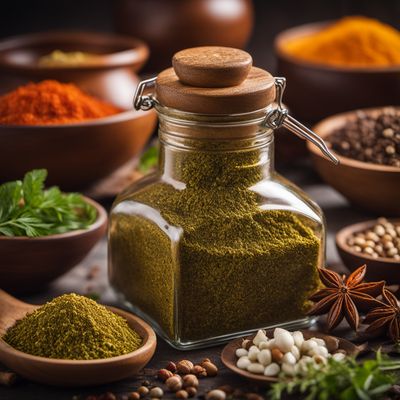
Ingredient
Herbs, spices and similar
Aromatic Wonders
Herbs, spices, and similar ingredients are diverse in nature, ranging from fragrant herbs like basil and thyme to pungent spices like cinnamon and cumin. They possess unique flavors, textures, and aromas that elevate culinary creations.
Origins and history
Herbs, spices, and similar ingredients have been used for centuries across various cultures. They have played significant roles in traditional medicine, religious rituals, and culinary practices. Their origins can be traced back to ancient civilizations such as Egypt, India, and China.
Nutritional information
Herbs, spices, and similar ingredients are low in calories and fat, but rich in antioxidants, vitamins, and minerals. They provide essential nutrients and health benefits, such as anti-inflammatory and immune-boosting properties.
Allergens
Some individuals may have allergies or sensitivities to specific herbs, spices, or similar ingredients. Common allergens include cilantro, parsley, and mustard seeds.
How to select
When selecting herbs, spices, or similar ingredients, look for vibrant colors, strong aromas, and intact leaves or seeds. Avoid wilted or discolored herbs, as they may have lost their potency.
Storage recommendations
To maintain the freshness and quality of herbs, spices, and similar ingredients, store them in airtight containers away from direct sunlight and moisture. Some delicate herbs may benefit from refrigeration.
How to produce
Herbs, spices, and similar ingredients can be grown in home gardens or small pots, allowing individuals to have a fresh supply. They require proper sunlight, well-drained soil, and regular watering for optimal growth.
Preparation tips
Herbs, spices, and similar ingredients can be used in various forms, such as fresh, dried, ground, or as extracts. They can be added to dishes during cooking or used as finishing touches for enhanced flavors. Experiment with different combinations to create unique taste profiles.
Culinary uses
Herbs, spices, and similar ingredients are widely used in cuisines around the world. They are essential in seasoning dishes, marinades, dressings, and sauces. They can also be used in baking, beverages, and desserts to add depth and complexity to the flavors.
Availability
Herbs, spices, and similar ingredients are commonly available in grocery stores, supermarkets, and specialty spice shops. They can also be sourced from local farmers markets or online retailers.
More ingredients from this category

Flowers or parts of flower used as spices or similar
Petals of Flavor: Exploring the Culinary World of Edible Flowers

Root and rhizome spices
Earthy Delights: Exploring the World of Root and Rhizome Spices

Aromatic herbs
Nature's Fragrant Treasures

Processed or preserved herbs, spices and similar
Preserved Flavor Boosters

Aril spices
The Exotic Essence of Aril Spices

Aromatic flowers
Nature's Fragrant Delights

Bark spices
The Aromatic Allure of Bark Spices: Unveiling Nature's Flavorful Treasures

Seed spices
Tiny Powerhouses of Flavor

Fruit spices
The Aromatic Symphony of Fruit Spices

Bud spices
Unlock the Aromatic Wonders of Bud Spices